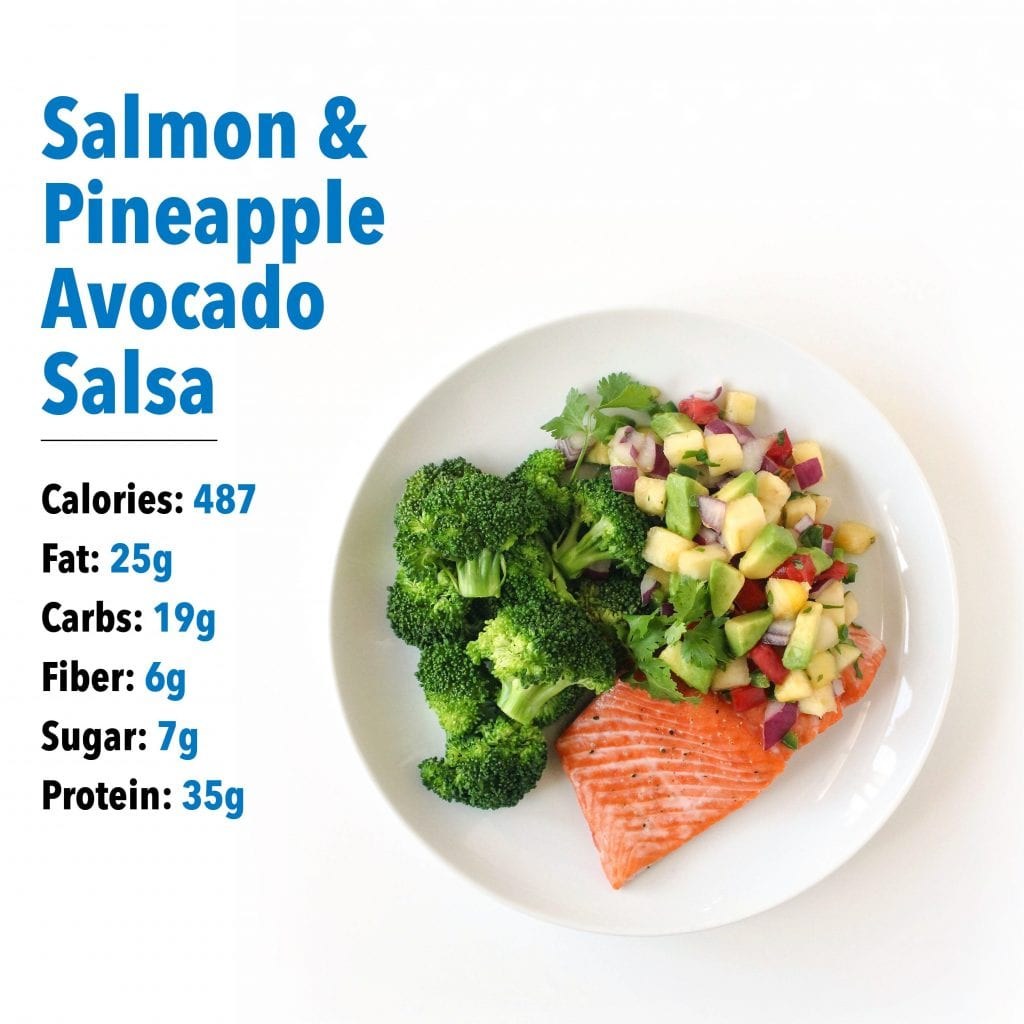Transform Your Body With The Power Of Healthy Eating 500 Calories: Take Action Now!
Healthy Eating 500 Calories
Introduction
Hello Readers,
1 Picture Gallery: Transform Your Body With The Power Of Healthy Eating 500 Calories: Take Action Now!

Welcome to an informative article on healthy eating and maintaining a balanced diet while consuming only 500 calories. In today’s fast-paced world, it is crucial to pay attention to our nutritional intake to maintain a healthy lifestyle. With the right choices, we can ensure that even with a restricted calorie intake, our bodies receive all the necessary nutrients.

Image Source: myfitnesspal.com
In this article, we will explore various aspects of healthy eating on a 500-calorie diet, including what it entails, who can benefit from it, when and where to implement it, why it is effective, and how to go about it. Let’s dive in and learn more about this topic!
What is Healthy Eating 500 Calories?
✨Healthy eating 500 calories✨ refers to consuming a diet that restricts calorie intake to 500 calories per day. This low-calorie diet is designed to create a calorie deficit, leading to weight loss. It focuses on consuming nutrient-rich foods that provide essential vitamins, minerals, and other vital nutrients while keeping the calorie count low.
This type of eating plan typically involves portion control and careful selection of foods to ensure that the body receives the necessary nutrition without exceeding the calorie limit. By choosing nutrient-dense foods, individuals can feel satisfied and maintain optimal health despite the restricted calorie intake.
Who Can Benefit from Healthy Eating 500 Calories?
✨Anyone✨ looking to lose weight or maintain a healthy weight can benefit from healthy eating on a 500-calorie diet. This eating plan may be especially suitable for individuals with a sedentary lifestyle or those who have a limited ability to exercise.
However, it is important to note that this diet may not be suitable for everyone. Individuals with certain medical conditions, such as diabetes, heart disease, or any other chronic condition, should consult with a healthcare professional before embarking on this eating plan. Additionally, pregnant or breastfeeding women should avoid restrictive diets and prioritize their nutritional needs.
When and Where to Implement Healthy Eating 500 Calories?
✨Healthy eating 500 calories✨ can be implemented at any time and anywhere, as long as you have access to nutritious foods. Whether you are at home, work, or dining out, you can make conscious choices to stick to the calorie limit while ensuring a balanced diet.
Planning is essential when following a 500-calorie diet. Preparing meals in advance or opting for healthier options when eating out can help you stay on track. It is crucial to prioritize whole, unprocessed foods and avoid high-calorie, low-nutrient choices.
Why is Healthy Eating 500 Calories Effective?
✨Healthy eating 500 calories✨ is effective for weight loss because it creates a calorie deficit. By consuming fewer calories than the body requires, it starts using stored fat as an energy source, resulting in weight loss. Additionally, this eating plan promotes portion control and encourages the consumption of nutrient-dense foods, leading to overall better health.
It is important to note that this eating plan should be followed under the guidance of a healthcare professional or a registered dietitian to ensure that it is suitable for an individual’s specific nutritional needs and goals.
How to Implement Healthy Eating 500 Calories?
✨Implementing healthy eating on a 500-calorie diet✨ involves careful planning and making smart food choices. Here are some tips to help you navigate this eating plan:
Focus on consuming whole, unprocessed foods such as fruits, vegetables, lean proteins, and whole grains. These foods are nutrient-dense and provide essential vitamins and minerals.
Avoid sugary drinks and opt for water or unsweetened beverages to stay hydrated without adding unnecessary calories.
Practice portion control by measuring your food and being mindful of serving sizes. Use smaller plates and bowls to visually control your portions.
Incorporate physical activity into your daily routine, even if it’s just a short walk. Regular exercise can complement your healthy eating plan and boost weight loss.
Keep track of your food intake and calorie count using a journal or a smartphone app. This can help you stay accountable and make adjustments if needed.
Seek professional guidance from a registered dietitian or healthcare professional to ensure that the 500-calorie diet is suitable for your individual needs and goals.
Listen to your body and make adjustments as necessary. If you feel excessively hungry or fatigued, consult a professional to evaluate your dietary plan.
Advantages and Disadvantages of Healthy Eating 500 Calories
Advantages:
1. Weight Loss: Following a 500-calorie diet can lead to significant weight loss due to the calorie deficit created.
2. Portion Control: This eating plan encourages portion control, which can help individuals develop healthier eating habits and avoid overeating.
3. Focus on Nutrient-Dense Foods: By limiting calorie intake, individuals are more likely to choose nutrient-dense foods to ensure they meet their nutritional needs.
4. Improved Health Markers: Losing weight and adopting a healthier lifestyle can lead to improved health markers such as blood pressure, cholesterol levels, and blood sugar control.
5. Increased Self-Discipline: Following a 500-calorie diet requires discipline and dedication, which can translate into improved self-discipline in other areas of life.
Disadvantages:
1. Nutritional Deficiencies: Consuming only 500 calories per day may not provide all the necessary nutrients, leading to potential deficiencies if not carefully planned.
2. Restrictive Nature: Following a restricted calorie intake can be challenging, and it may be difficult to sustain this eating plan in the long term.
3. Increased Hunger: Restricting calorie intake can lead to increased feelings of hunger and food cravings, which may require additional strategies to manage.
4. Individual Variations: The 500-calorie diet may not be suitable for everyone, and individual variations in metabolism and health conditions should be considered.
5. Need for Professional Guidance: It is recommended to seek guidance from a healthcare professional or registered dietitian to ensure that this eating plan is appropriate for individual needs and goals.
Frequently Asked Questions (FAQs)
1. Can I Follow a 500-Calorie Diet Without Consulting a Professional?
It is always recommended to consult a healthcare professional or registered dietitian before embarking on any restrictive diet, including a 500-calorie diet. They can assess your individual needs and provide guidance to ensure your nutritional needs are met.
2. Will I Lose Weight Quickly on a 500-Calorie Diet?
Following a 500-calorie diet can lead to significant weight loss due to the calorie deficit created. However, the rate of weight loss may vary depending on individual factors such as metabolism, activity level, and overall health.
3. Are There Any Risks Associated with a 500-Calorie Diet?
While a 500-calorie diet can be effective for weight loss, it may not be suitable for everyone. It is important to consider individual health conditions and consult with a healthcare professional to minimize any potential risks.
4. Can I Exercise While Following a 500-Calorie Diet?
While it is generally safe to engage in light to moderate exercise while following a 500-calorie diet, it is crucial to listen to your body and adjust your activity level accordingly. It is recommended to consult with a healthcare professional or a certified fitness expert for personalized advice.
5. How Long Can I Follow a 500-Calorie Diet?
The duration for following a 500-calorie diet can vary depending on individual goals and health conditions. It is recommended to consult with a healthcare professional or registered dietitian to determine an appropriate timeline for following this eating plan.
Conclusion
In conclusion, healthy eating on a 500-calorie diet can be an effective way to achieve weight loss while ensuring the body receives essential nutrients. It requires careful planning, portion control, and a focus on nutrient-dense foods. However, it is important to seek guidance from a healthcare professional or registered dietitian to ensure that this eating plan is suitable for your individual needs and goals.
Embarking on any dietary plan should always prioritize long-term health and sustainability. Remember to listen to your body, make adjustments when necessary, and seek professional advice when needed. With the right approach, you can achieve your weight loss goals while maintaining a healthy lifestyle!
Final Remarks
Disclaimer: The information provided in this article is for educational purposes only and should not be considered as medical advice. Always consult with a healthcare professional or registered dietitian before making any significant changes to your diet or exercise routine. The author and website are not responsible for any consequences that may arise from following the information provided in this article.
This post topic: Fitness Tips

